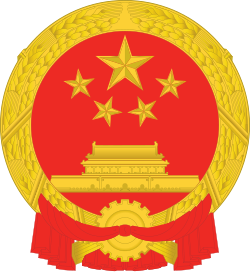Beijing Municipal People's Congress 北京市人民代表大会 | |
|---|---|
| 16th Beijing Municipal People's Congress | |
 | |
| Type | |
| Type | |
| Leadership | |
Chairman | |
Vice Chairpersons | |
| Seats | 774 |
| Elections | |
Beijing Municipal People's Congress voting system | Plurality-at-large voting & Two-round system |
Last Beijing Municipal People's Congress election | January 2023 |
Next Beijing Municipal People's Congress election | January 2028 |
| Meeting place | |
 | |
| Headquarters | |
| Website | |
| www | |
| Beijing Municipality People's Congress | |||||||
|---|---|---|---|---|---|---|---|
| Simplified Chinese | 北京 市 人民 代表 大会 | ||||||
| Traditional Chinese | 北京市人民代表大會 | ||||||
| |||||||
The Beijing Municipal People's Congress is the local people's congress of Beijing. With 774 members in 2023, [1] the Municipal People's Congress is the elected council of Beijing that oversees the Beijing Municipal People's Government. The Beijing Municipal People's Congress is elected for a term of five years. It holds annual sessions every spring,usually lasting from 5 to 7 days. [2] Between these annual sessions,the functions of the Municipal People's Congress are handled by its permanent body,the Standing Committee. [3] [4]
